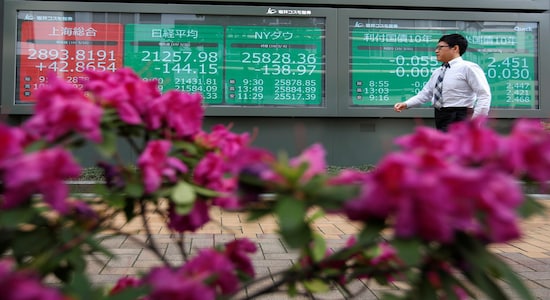
 1 / 10
1 / 101. Asia: Stocks in Japan were set to trade higher following an overnight bounce for tech stocks on Wall Street as a recent rotation into cyclicals paused. Futures pointed to a higher open for Japanese stocks. The Nikkei futures contract in Chicago was at 25,545 while its counterpart in Osaka was at 25,490. That compared against the Nikkei 225′s last close at 25,349.60. Shares of Australia were higher in early trade, with the S&P/ASX 200 gaining about 0.2 percent, reported CNBC International. (Image: Reuters)
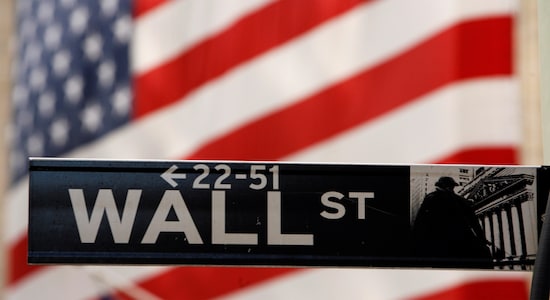
 2 / 10
2 / 102. US: The Nasdaq closed up 2 percent on Wednesday as investors switched back to technology stocks and away from economically sensitive sectors as they weighed COVID-19 vaccine progress against a virus surge and likely timing for a economic rebound. But investors changed gears Wednesday to buy the S&P growth index which includes the less economically sensitive technology stocks, and sell the value index which includes banks and energy stocks.The Dow Jones Industrial Average fell 23.29 points, or 0.08 percent, to 29,397.63, the S&P 500 gained 27.13 points, or 0.77 percent, to 3,572.66 and the Nasdaq Composite added 232.58 points, or 2.01 percent, to 11,786.43, reported CNBC International. (Image: AP)
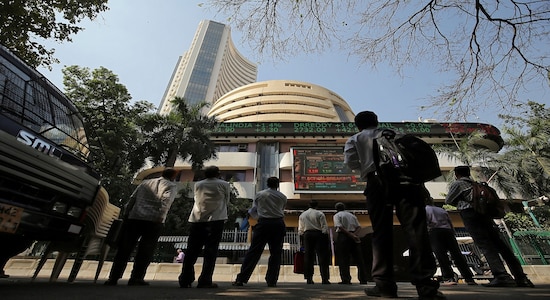
 3 / 10
3 / 103. Closing Bell On Wednesday: The Indian benchmark equity indices, Sensex and Nifty extended gains for the eighth straight session to end at a record level on Wednesday led by pharma and metal stocks amid strong global cues. The Sensex ended 316.02 points or 0.73 percent higher at 43,593.67, while the Nifty gained 118.05 points or 0.93 percent to settle at 12,749.15. Nifty Bank advanced 239 points to 28,845. Broader indices supported the gains with Nifty Smallcap100 and Nifty Midcap100 indices rising 0.72 percent and 0.37 percent, respectively.(Image: Reuters)
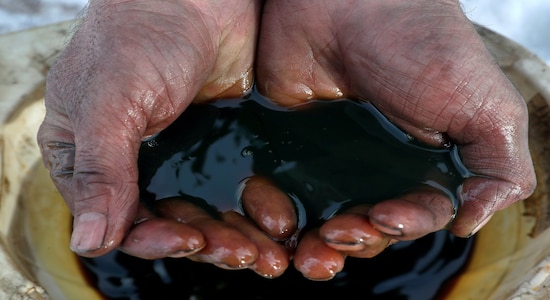
 4 / 10
4 / 104. Crude Oil: Oil prices rose slightly on Wednesday as hopes of an effective COVID-19 vaccine continued to bolster sentiment and an industry report showed U.S. crude inventories fell more than expected. Brent crude rose 0.16 percent to $44.53 a barrel, while U.S. West Texas Intermediate (WTI) crude settled up 9 cents, or 0.2 percent, to $41.45 a barrel. Both benchmarks gained nearly 3 percent on Tuesday, reported CNBC International. (Image: Reuters)
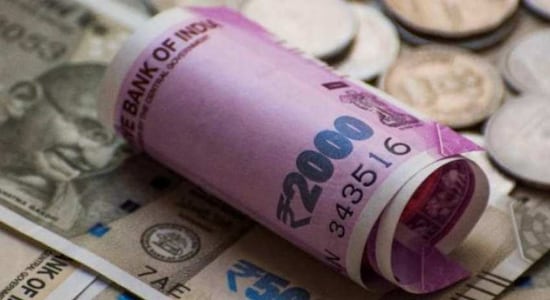
 5 / 10
5 / 105. Rupee: The rupee declined 18 paise to close at 74.36 against the US dollar on Wednesday, tracking strengthening American currency in the overseas market and higher crude prices. The rupee finally settled at 74.36 against the greenback, down 18 paise over its last close, reported PTI. (Image: Reuters)
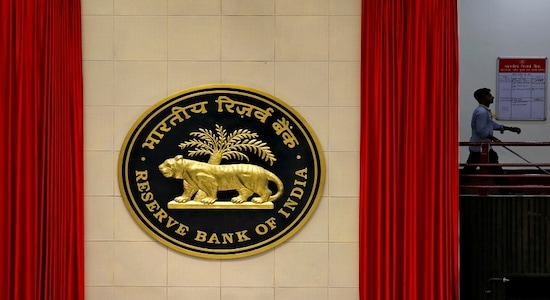
 6 / 10
6 / 106. RBI On GDP Contraction: The GDP is likely to contract by 8.6 percent for the July-September period, which means India will enter into a recession for the first time in history in the first half of this fiscal with two successive quarters of negative growth due to the COVID-19 pandemic, as per an RBI official. Researchers have used the 'nowcasting' method to arrive at the estimates ahead of the official release of data and their views in an article in RBI's monthly bulletin released on Wednesday do not constitute the central bank's views. The pandemic-induced lockdowns had led to a steep contraction of 23.9 percent in the GDP for the April-June quarter as compared to the same period a year ago. The RBI has estimated that the economy will contract by 9.5 percent for the full fiscal year. (Image: Reuters)

 7 / 10
7 / 107. Cabinet Approves PLI Scheme For 10 Sectors: The Narendra Modi government on Wednesday approved offering Rs 2 lakh crore worth of production-linked incentives (PLI) scheme to 10 more sectors to boost domestic manufacturing. Confirming the CNBC-TV18 newsbreak, the information and broadcasting minister Prakash Javadekar said production-linked incentives will be offered for sectors such as white goods manufacturing, pharmaceutical, specialised steel, auto, telecom, textile, food products, solar photovoltic, and cell battery. The scheme will help encourage domestic manufacturing, reduce imports, and generate employment as the government works to bolster economic growth. The financial outlay for the new scheme will be Rs 1,45,980 crore. (Image: Reuters)

 8 / 10
8 / 108. Govt Rule On E-invoicing: The government has notified the mandatory requirement of e-invoicing for B2B transactions for businesses with a turnover of over Rs 100 crore with effect from January 1, 2021. Under Goods and Services Tax (GST) law, e-invoicing for business-to-business (B2B) transactions is mandatory for companies with turnover of over Rs 500 crore from October 1. In a notification, the Central Board of Indirect Taxes and Customs (CBIC) said e-invoicing will be extended to businesses with a turnover of over Rs 100 crore from January 1. Under e-invoicing, taxpayers have to generate invoices on their internal systems (ERP/accounting/billing software) and then report it online to the Invoice Registration Portal (IRP). (stock image)
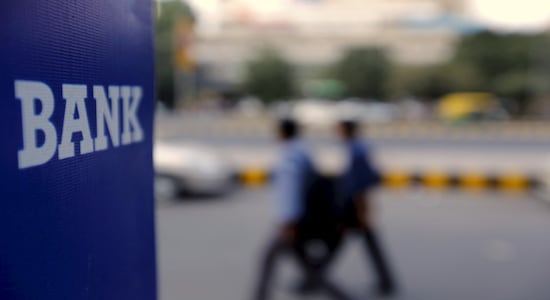
 9 / 10
9 / 109. IBA, Bank Unions Conclude Wage Negotiations: Over 8.5 lakh employees, majorly from public sector banks (PSBs), will get a 15 percent hike in pay, with the conclusion of the 11th Bipartite Wage Negotiations on Wednesday. After three years of intense negotiations, the UFBU, which represents four bank officer associations and five workman unions, and the IBA on July 22 entered into a memorandum of understanding (MoU) for an annual wage hike of 15 percent. "The Indian Banks' Association is pleased to announce the conclusion of 11th Bipartite Wage Negotiations with bank unions and associations to be effective from November 1, 2017. The agreement reached today (on Wednesday) provides for a 15 percent increase in pay slip," IBA Chief Executive Officer Sunil Mehta said in a statement. The 15 percent hike in wages would be for a period of five years starting November 1, 2017. (Image: Reuters)
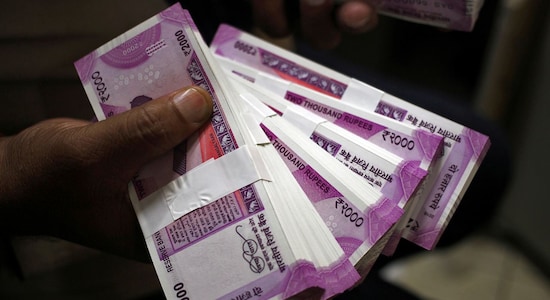
 10 / 10
10 / 1010. Govt Tightens Rules For NGOs: The NGOs that intend to receive foreign funding will now face tougher rules with the Union Home Ministry making it clear that such organisations must have existed for at least three years and spent Rs 15 lakh in voluntary activities to be eligible to receive money from abroad. In a notification, the home ministry also said office bearers of the NGOs seeking registration under the Foreign Contribution (Regulation) Act must submit a specific commitment letter from the donor indicating the amount of foreign contribution and the purpose for which it is proposed to be given. The FCRA rules were issued about two months after the central government had amended the law under which providing Aadhaar numbers of the office bearers of the NGOs was made mandatory, office expenses were brought down to 20 percent of such amount and election candidates, government servants, members of any legislature and political parties were prohibited from accepting foreign funding. (Image: Reuters)

